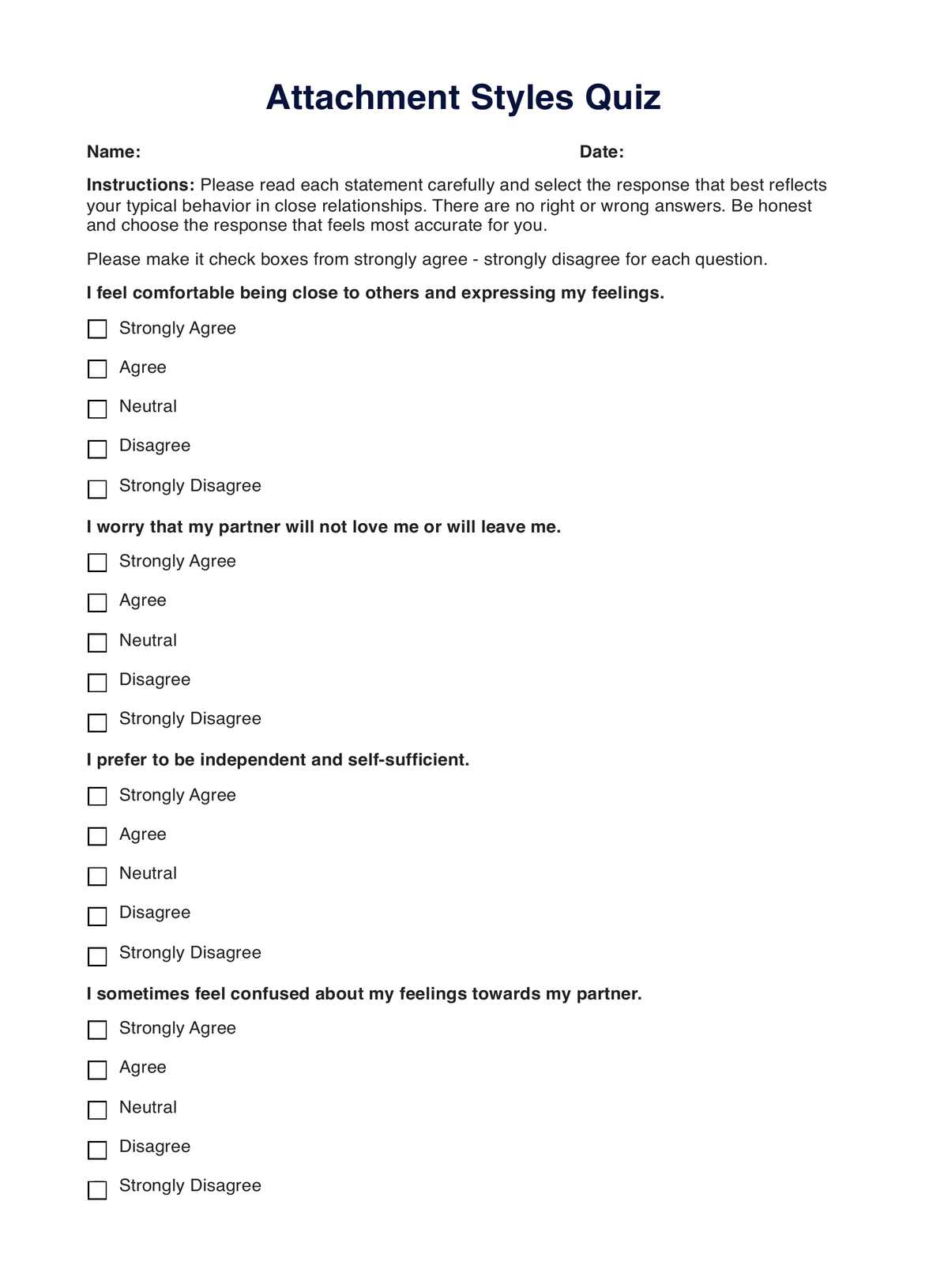The four main attachment styles, originating from the work of John Bowlby and further developed by Mary Ainsworth's "Strange Situation" experiment, describe predictable patterns of relating to others based on early interactions with caregivers. These styles are secure, characterized by comfort with intimacy and independence; anxious-preoccupied, marked by a fear of abandonment and a strong desire for closeness; avoidant-dismissive, defined by a preference for emotional distance and self-reliance; and fearful-avoidant (or disorganized), which is a mix of the anxious and avoidant styles, leading to conflicted, unstable behavior and a desire for connection that is simultaneously pushed away.

Attachment Styles Quiz
Help clients explore their attachment style and gain insights into emotional connections with our Attachment Styles Quiz.
Attachment Styles Quiz Template
Commonly asked questions
The unhealthiest attachment style is generally considered to be fearful-avoidant (also called disorganized), as it represents a fundamental conflict regarding intimacy, often stemming from inconsistent or frightening caregiver behavior during childhood. Individuals with this style experience high anxiety alongside a strong desire to avoid close relationships, leading to unstable and chaotic dynamics where they often feel trapped between wanting connection and fearing it. This pattern can result in the most relationship distress because the individual's approach to their partner is unpredictable and internally contradictory.
The fearful-avoidant (or disorganized) attachment style is often considered the rarest in the general population, making up an estimated 5% to 10% of adults. While Secure attachment is the most common and is considered the ideal healthy default, the rates of the other three insecure styles—anxious-preoccupied, avoidant-dismissive, and fearful-avoidant—vary across studies, but Disorganized typically presents the lowest frequency.
EHR and practice management software
Get started for free
*No credit card required
Free
$0/usd
Unlimited clients
Telehealth
1GB of storage
Client portal text
Automated billing and online payments











